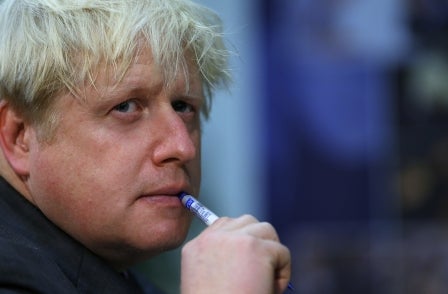
The Court of Appeal has said a Daily Mail story speculating that a well-known philandering politician was the father of a baby did not infringe the child’s right to privacy.
But it ruled that the paper was wrong to publish a picture of the child without parental permission and so upheld an earlier damages award of £15,000.
The ruling does not name the politician concerned, who is London mayor Boris Johnson.
The Appeal Court said in its ruling:
The judge carefully considered all the issues and reached a conclusion which is beyond challenge. It is not in dispute that the legitimate public interest in the father's character is an important factor to be weighed in the balance against the claimant's expectation of privacy. The core information in this story, namely that the father had an adulterous affair with the mother, deceiving both his wife and the mother's partner and that the claimant, born about 9 months later, was likely to be the father's child, was a public interest matter which the electorate was entitled to know when considering his fitness for high public office."
It is alleged that during 12 days in 2010 journalists lay siege to the home of the child who is now three, but was less than a year old at the time. This was said to have involved between two and five journalists, as well as photographers who would wait in parked cars until at least 11pm.
In her original High Court ruling Mrs Justice Nichola Davies questioned whether the media attention constituted a siege and said that the Daily Mail could not be held responsible for it in any case. She also noted that the photograph of the child was taken by a freelance agency and that there is no evidence it was acting on the instructions of the Mail.
She ruled that the Daily Mail was justified in reporting the alleged paternity of the child partly because the mother had spoken about to friends and speculated about it in a magazine interview.
She also said the fact that the child’s alleged father was a prominent politician justified the Daily Mail’s reporting.
It is undisputed that there is a public interest in the professional and private life of the claimant's supposed father. His professional position speaks for itself.
“As to his private life, he is man who has achieved a level of notoriety as result of extramarital adulterous liaisons. Of itself, the fact of an extramarital affair does not render inevitable the publishing of information that, as a result, a child was conceived.
“However, the claimant is alleged to be the second such child conceived as a result of an extramarital affair of the supposed father. It is said that such information goes to the issue of recklessness on the part of the supposed father, relevant both to his private and professional character, in particular his fitness for public office.
“I find that the identified issue of recklessness is one which is relevant to the professional and personal character of the supposed father. Specifically, I find that it goes beyond fame and notoriety.
“I find that the publication of the fact of the claimant's birth in the circumstances alleged was justified.”
Today's judgment agreed with the earlier High Court ruling stating that publication of the child’s photo was a breach of privacy.
That judgment said:
The photograph of the claimant was taken in a public place, when she was less than one year old, her mother was unaware of it being taken, there is no suggestion that the taking of the photograph caused distress to the claimant.
"The same photograph accompanied the first, second and eighth articles published by the defendant's newspaper. No consent to publication was obtained from the claimant's mother.
“It is said that the photographs were published in order to permit readers to see whether or not there was any family resemblance as between the claimant and her supposed father. In respect of the eighth article, an additional justification was to permit readers to better judge the credibility of the denial of paternity by the claimant's mother's boyfriend.
“Given the context of the articles I am satisfied that the publication of the photograph did engage the claimant's Article 8 rights. Even allowing for the margin of journalistic appreciation I do not regard the publication of any of the photographs as being reasonable nor do I accept that the defendant's reasoning would constitute ‘exceptional public interest’ sufficient to justify publication.
“The articles provided sufficient information, no more was required, particularly when the same involved the image of a young child photographed and published without the parent's consent.”
AAA versus Associated Newspapers – Court of Appeal judgment
AAA versus Associated Newspapers – High Court judgment
Email pged@pressgazette.co.uk to point out mistakes, provide story tips or send in a letter for publication on our "Letters Page" blog
